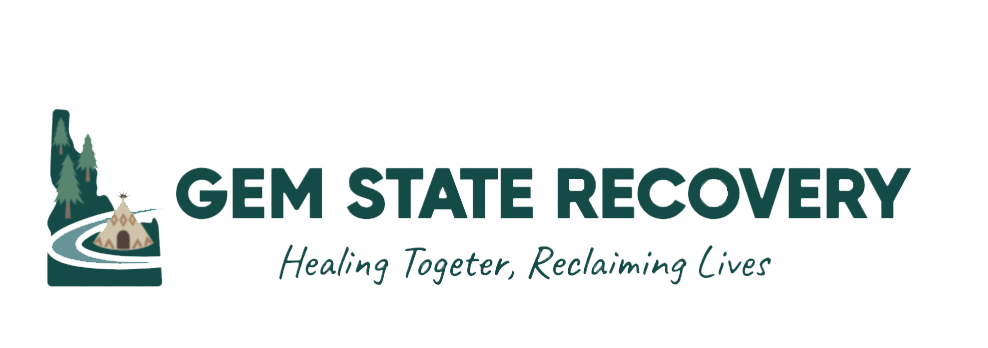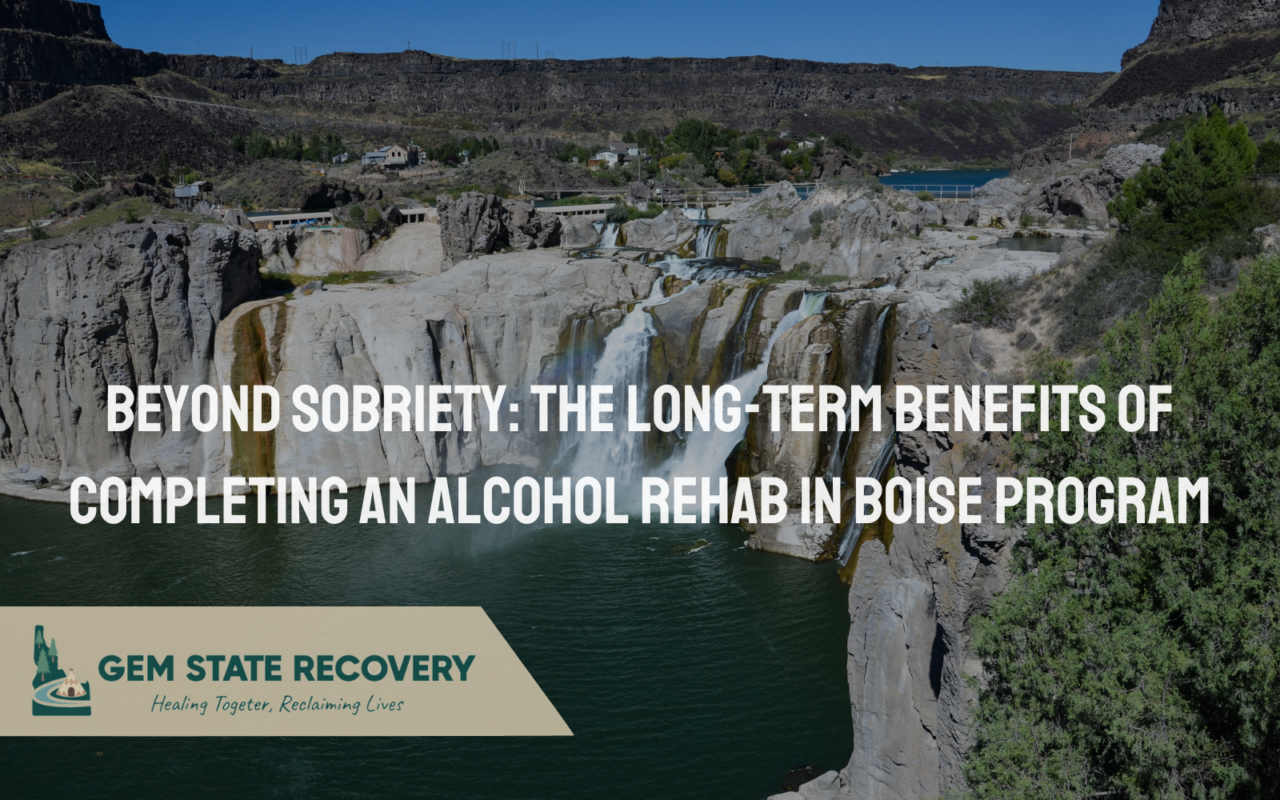Struggling with alcohol addiction can feel like an uphill battle, affecting every aspect of your life. From your health to your relationships and employment, the impact is far-reaching. But there’s hope. If you or a loved one is grappling with alcohol addiction, seeking professional help through an alcohol rehab in Boise could be the lifeline you need. This blog will guide you through what to expect during your stay, from detox to aftercare, ensuring you or your loved one can make an informed decision about taking this crucial step toward recovery.
Understanding Alcohol Rehab
Alcohol rehab is a structured program designed to help individuals achieve and maintain sobriety. Its primary purpose is to provide a safe and supportive environment where individuals can detoxify their bodies, understand the root causes of their addiction, and develop strategies to prevent relapse. There are two main types of treatment options available:
- Inpatient programs – These involve staying at a rehab facility for a set period, usually ranging from 30 to 90 days. Inpatient programs offer intensive, round-the-clock care and support, making them ideal for those with severe addictions or co-occurring mental health disorders. The structured environment provides a safe space for individuals to focus solely on their recovery without the distractions and triggers of everyday life. Patients have access to medical professionals, therapists, and peer support groups, all of which contribute to a comprehensive treatment plan.
- Outpatient programs – These allow individuals to live at home while attending treatment sessions during the day or evening. Outpatient programs are more flexible and can be a good option for those with milder addictions or responsibilities that make it difficult to commit to an inpatient program. Participants are able to maintain work, school, or family obligations while receiving treatment. Sessions often include individual therapy, group counseling, and educational workshops that equip individuals with the skills they need to manage their addiction in real-world settings.
Regardless of the type of program, seeking professional help for alcohol addiction significantly improves the chances of successful recovery. Professional rehab centers provide a structured environment where individuals can focus solely on their recovery, surrounded by trained staff who can offer medical, emotional, and psychological support. For those seeking alcohol rehab in Boise, there are various options available that can cater to individual needs and circumstances.
Detoxification The First Step
Detoxification, commonly known as detox, is the critical first step in the rehab process. This phase involves clearing the body of alcohol and other toxins to prepare for further treatment. Detox is essential because it helps manage withdrawal symptoms that can arise when an individual stops drinking.
Withdrawal symptoms can be both physical and psychological, ranging from mild to severe. These symptoms can significantly impact an individual’s well-being and daily life. They may include:
- Physical symptoms – Nausea, vomiting, sweating, shaking, and headaches are common physical manifestations. Some individuals may also experience muscle aches, fatigue, and changes in appetite or sleep patterns. Additionally, people might suffer from dizziness, palpitations, and shortness of breath, which can further exacerbate their discomfort.
- Psychological symptoms – Anxiety, depression, irritability, and mood swings are frequent psychological symptoms. In some cases, individuals might also face difficulty concentrating, restlessness, and an overwhelming sense of unease. Furthermore, some may experience heightened sensitivity to stress, feelings of hopelessness, and an inability to find pleasure in activities they once enjoyed.
Managing these symptoms is crucial to ensure the safety and comfort of the individual undergoing detox. Medical supervision is often necessary during this stage to handle potential complications, such as seizures or severe dehydration. A medically supervised detox provides the necessary support and care to help individuals through this challenging phase.
For those seeking alcohol rehab in Boise, a comprehensive detox program is available to effectively manage withdrawal symptoms and prepare individuals for the next steps in their recovery journey.
Therapy and Counseling Addressing Underlying Issues
Therapy and counseling play a pivotal role in alcohol rehab in Boise. These sessions aim to help individuals understand the root causes of their addiction and develop coping strategies to prevent relapse. Different types of therapy may be used, depending on the individual’s needs and the rehab center’s approach. Some common types of therapy include:
- Cognitive Behavioral Therapy (CBT) – This form of therapy focuses on changing negative thought patterns and behaviors that contribute to addiction. Through structured sessions, CBT helps individuals identify and challenge distorted beliefs, replacing them with healthier ways of thinking. It also equips individuals with practical coping strategies to manage stress and triggers, promoting long-term recovery and resilience.
- Group Therapy – Group sessions provide a supportive environment where individuals can share their experiences and learn from others facing similar challenges. These sessions foster a sense of community and belonging, as participants realize they are not alone in their struggles. The peer support offered in group therapy can be incredibly motivating and reassuring, often leading to significant breakthroughs and a stronger commitment to recovery.
- Family Therapy – Alcohol addiction often affects not just the individual but also their loved ones, creating a ripple effect of emotional and relational issues. Family therapy aims to address these dynamics by facilitating open communication and understanding among family members. It focuses on improving relationships, rebuilding trust, and developing effective strategies to support the recovering individual. This holistic approach helps create a healthier, more supportive home environment conducive to lasting recovery.
Addressing underlying issues, such as trauma, mental health disorders, and family dynamics, is crucial for long-term recovery. Therapy helps individuals resolve these issues, making it easier to maintain sobriety and prevent relapse in alcohol rehab in Boise.
Treatment Philosophy and Approach
The treatment philosophy and approach of a rehab center can significantly impact an individual’s recovery experience. Different centers may adopt various philosophies, such as holistic, evidence-based, or individualized treatment. Here’s a brief overview of what these philosophies entail:
- Holistic Approach – This philosophy focuses on treating the whole person, not just the addiction. Beyond addressing the physical aspects of addiction, it aims to heal the mind, body, and spirit. It may include alternative therapies like yoga, meditation, and acupuncture, alongside traditional treatments such as counseling and medical intervention. The goal is to promote overall well-being and equip individuals with tools for long-term recovery.
- Evidence-Based Approach – This philosophy relies on scientifically proven methods and therapies to treat addiction. It emphasizes the use of research-backed treatments and continuous monitoring of progress. Treatments often include behavioral therapies, such as Cognitive Behavioral Therapy (CBT) and medication-assisted treatments (MAT). The evidence-based approach ensures that the methods used are effective and grounded in empirical research, providing a structured path to recovery.
- Individualized Approach – This philosophy tailors the treatment plan to the unique needs and circumstances of each individual. It recognizes that there is no one-size-fits-all solution to addiction and adjusts the treatment accordingly. Personalized plans may consider factors such as the type of substance used, the duration of addiction, co-occurring mental health conditions, and personal preferences. This approach aims to address the specific challenges and strengths of each person, enhancing the likelihood of successful recovery.
Regardless of the philosophy, the expertise and qualifications of the staff members involved in providing treatment are crucial. Experienced professionals, such as addiction counselors, therapists, and medical staff, can offer the necessary support and guidance throughout the recovery process.
If you are seeking a specialized center for alcohol rehab in Boise, it’s important to evaluate their treatment philosophy to ensure it aligns with your recovery goals.
Life Skills and Coping Mechanisms
Learning life skills and coping mechanisms during alcohol rehab in Boise is vital for maintaining long-term sobriety. These skills help individuals navigate daily challenges without resorting to alcohol. Some common skills taught in rehab include:
- Stress Management Techniques – Learning how to manage stress effectively can prevent individuals from turning to alcohol as a coping mechanism. Techniques may include mindfulness practices, such as meditation and yoga, deep breathing exercises to calm the mind and body, and various relaxation methods like progressive muscle relaxation or guided imagery. Additionally, finding healthy outlets for stress, such as exercise, hobbies, or spending time in nature, can contribute to overall well-being.
- Effective Communication – Developing strong communication skills can improve relationships and reduce conflicts, which are common triggers for alcohol use. Individuals learn how to express their needs and feelings assertively and constructively, avoiding passive or aggressive communication styles. This may involve practicing active listening, using “I” statements to convey personal experiences without placing blame, and learning to navigate difficult conversations with empathy and patience. Strengthened communication can foster deeper connections and a greater sense of support from others.
- Problem-Solving – Being able to solve problems effectively can reduce feelings of helplessness and frustration that may lead to alcohol use. Individuals learn how to break down problems into manageable steps, analyze potential obstacles, and develop practical solutions. This can involve brainstorming multiple options, weighing the pros and cons of each, and implementing a step-by-step plan to address issues. Enhancing problem-solving skills not only builds confidence but also empowers individuals to tackle challenges proactively.
- Time Management – Managing time efficiently can reduce stress and create a sense of accomplishment, which is essential for maintaining a healthy lifestyle. Individuals learn how to prioritize tasks by identifying what is most important and urgent, set realistic and achievable goals, and maintain a balanced schedule that includes time for work, rest, and leisure. Techniques such as creating to-do lists, using planners or digital calendars, and setting aside specific times for focused work can help individuals stay organized and productive. Effective time management allows for a more structured and fulfilling daily routine, reducing the likelihood of turning to alcohol as a means of coping with time-related stress.
Building a routine and setting realistic goals are also essential components of rehab. A structured routine provides stability and predictability, which can be comforting during the recovery process. Setting and achieving realistic goals can boost self-esteem and provide a sense of purpose.
Aftercare Continuing Support for Long-Term Sobriety
The aftercare phase of alcohol rehab in Boise is crucial for providing ongoing support and preventing relapse. Aftercare typically begins once the initial treatment program is completed and can continue for months or even years. Different types of aftercare options are available, each offering unique benefits:
- Support Groups – Joining a support group, such as Alcoholics Anonymous (AA), can provide a sense of community and accountability, which is crucial for long-term recovery. Regular meetings allow individuals to share their experiences, receive encouragement, and stay committed to their sobriety. Participants often develop meaningful relationships and learn from the shared wisdom of others who have faced similar struggles, creating a robust support network.
- Sober Living Homes – These structured, alcohol-free environments provide a safe and supportive place for individuals to transition back to everyday life after completing a rehabilitation program. Residents often participate in group activities, follow house rules, and receive ongoing support from staff. The communal living situation helps foster responsibility, discipline, and a sense of belonging, all of which are key factors in maintaining sobriety. Additionally, sober living homes often have curfews, mandatory chores, and regular drug tests to ensure a safe and supportive environment.
- Continued Therapy – Regular check-ins with a counselor or therapist can help individuals address any challenges they face and reinforce the coping strategies learned during rehab. Ongoing therapy sessions can provide additional support and guidance as individuals navigate life in recovery, helping them to manage stress, avoid triggers, and maintain a positive outlook. Therapists can also assist with co-occurring mental health issues, offering a holistic approach to recovery that addresses both substance use and underlying psychological conditions.
- Participating in Ongoing Treatment Programs – Some rehab centers offer continuing care programs that provide ongoing treatment and support even after the initial rehabilitation period has ended. These programs may include follow-up sessions, workshops, and educational resources designed to help individuals stay on track with their recovery goals. Such programs often offer specialized services, such as vocational training, life skills development, and family counseling, to support a well-rounded and sustainable recovery. Regular participation in these programs can help individuals stay focused, motivated, and connected to a supportive community.
Continued support is essential for maintaining long-term sobriety. Staying connected to a support network and accessing ongoing resources can help individuals stay on track and prevent relapse.
Recovery Starts Here
Navigating the path to recovery from alcohol addiction is challenging, but seeking professional help through an alcohol rehab in Boise can make all the difference. From detoxification and therapy to life skills training and aftercare, rehab provides comprehensive support to help individuals achieve and maintain sobriety.
If you or a loved one is struggling with alcohol addiction, don’t hesitate to seek help. Alcohol rehab programs in Boise offer the tools and support needed to overcome addiction and live a fulfilling life in recovery. Take the first step today and reach out to a rehab center to begin your recovery journey. Remember, help is available, and recovery is possible. For more information or to seek help visit our website https://gemstaterecovery.com/ or call us at (208) 314-3107.






